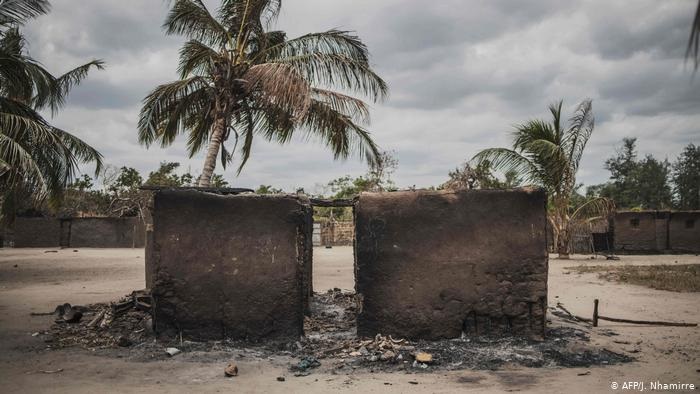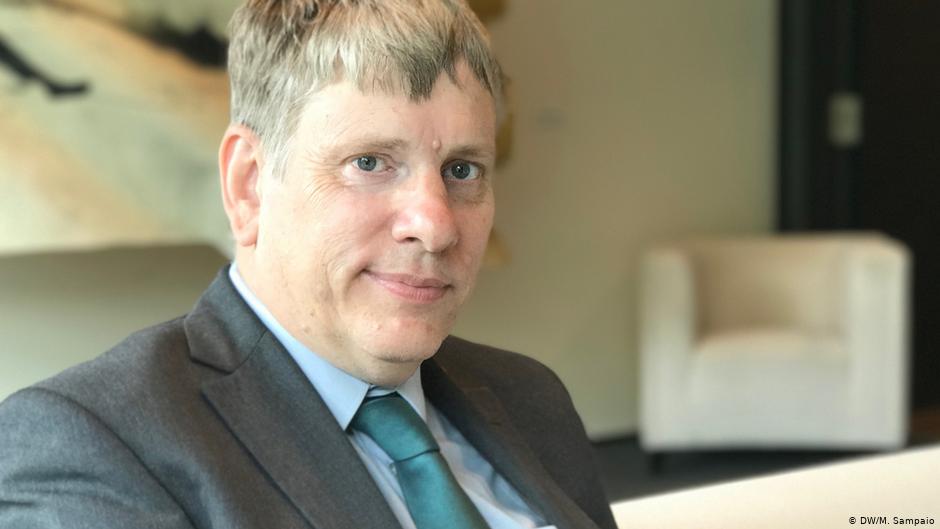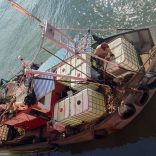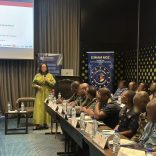Nine Indonesian crewmen finally leave stranded LPG tanker in Mozambique
Insurgency: Does Mozambique risk becoming another Nigeria?

There are parallels between the two cases, and they are related to the origin of the insurgency, says Alex Vines. But the British researcher believes that the crisis may still be contained, and that Maputo can learn from Abuja’s mistakes.
The actions of insurgents in the northern province of Cabo Delgado have now entered a new phase. Violence and the frequency of attacks have increased, and the attacks have started to target state and religious symbols in a deliberately provocative way, such as to suggest the “taking” of certain areas.
But the response of the Mozambican authorities is also beginning to adjust, and, with it, new players are entering the stage. It is about this new phase that we interviewed Alex Vines, researcher for the Africa Programme at the British Chatham House research institute.
DW Africa: For the first time, the government reacted to the insurgent attacks, apparently with satisfactory results. If this happens regularly, do you believe that the insurgency’s days in Cabo Delgado are numbered?

Alex Vines (AV): Mozambique’s Defence and Security Forces (FDS) have, over the past month, been focused on a counter-offensive which was, possibly, successful. And, like all counter-insurgency operations, the challenge is a long-term one – winning the hearts and minds of the local population, providing development and security.
DW Africa: There are reports of South African and Zimbabwean mercenaries, and even Angolan troops, supporting the Mozambican government. There is also talk of the possibility of an SADC military force to support the country. How do you see regional cooperation, considering that insurgents may have expansionist intentions in southern Africa?
AV: It is true that the Mozambican government has hired the AJA group to provide advice and air support. This double presence in the counter-insurgency experience of Angola, Sierra Leone, Nigeria and other countries seems to me to have reversed the insurgency gains in the short term. Equally important is the recent announcement that Tanzania has sent additional troops to the Rovuma River border [with Mozambique]. I don’t believe Angola has sent troops, but it has offered advice, like Zimbabwe. The crisis in Cabo Delgado is a regional issue and SADC has a role to play in this regard.
DW Africa: There is already talk of insurgents infiltrating villages and using the population as a shield. It is also anticipated that they might [attempt to] kidnap or attack prominent religious leaders and senior officials. How do you interpret this new insurgent approach?
AV: The insurgency has entered a new phase. Attacks like the one in Mocímboa da Praia avoided civilian casualties, and commodities like fuel and money were given back during the occupation. Clearly the insurgents are trying to build a social base and give the symbols of the state and civil servants a setback. That is why the government will need to improve its own hearts-and-minds strategies a lot.
DW Africa: Can it be said that Cabo Delgado is the scene of a civil war?
AV: It is an insurgency, and the main causes are local and regional. I would not say that this is like the civil war with Renamo which started in 1977 and ended in 1992. It is different, But the majority of the causes and of the solutions are Mozambican.
DW Africa: Social inequalities are also believed to be correlated with the insurgency. How do you think the authorities should resolve this?
AV: Poverty, inequality and governance are the main drivers of this conflict. The appointment of Armando Panguene in March this year as president of the Integrated Development Agency of Northern Mozambique is an important development. There is no military solution to the insurgency.












Leave a Reply
Be the First to Comment!
You must be logged in to post a comment.
You must be logged in to post a comment.